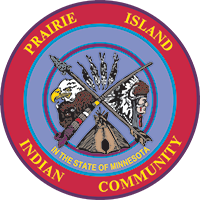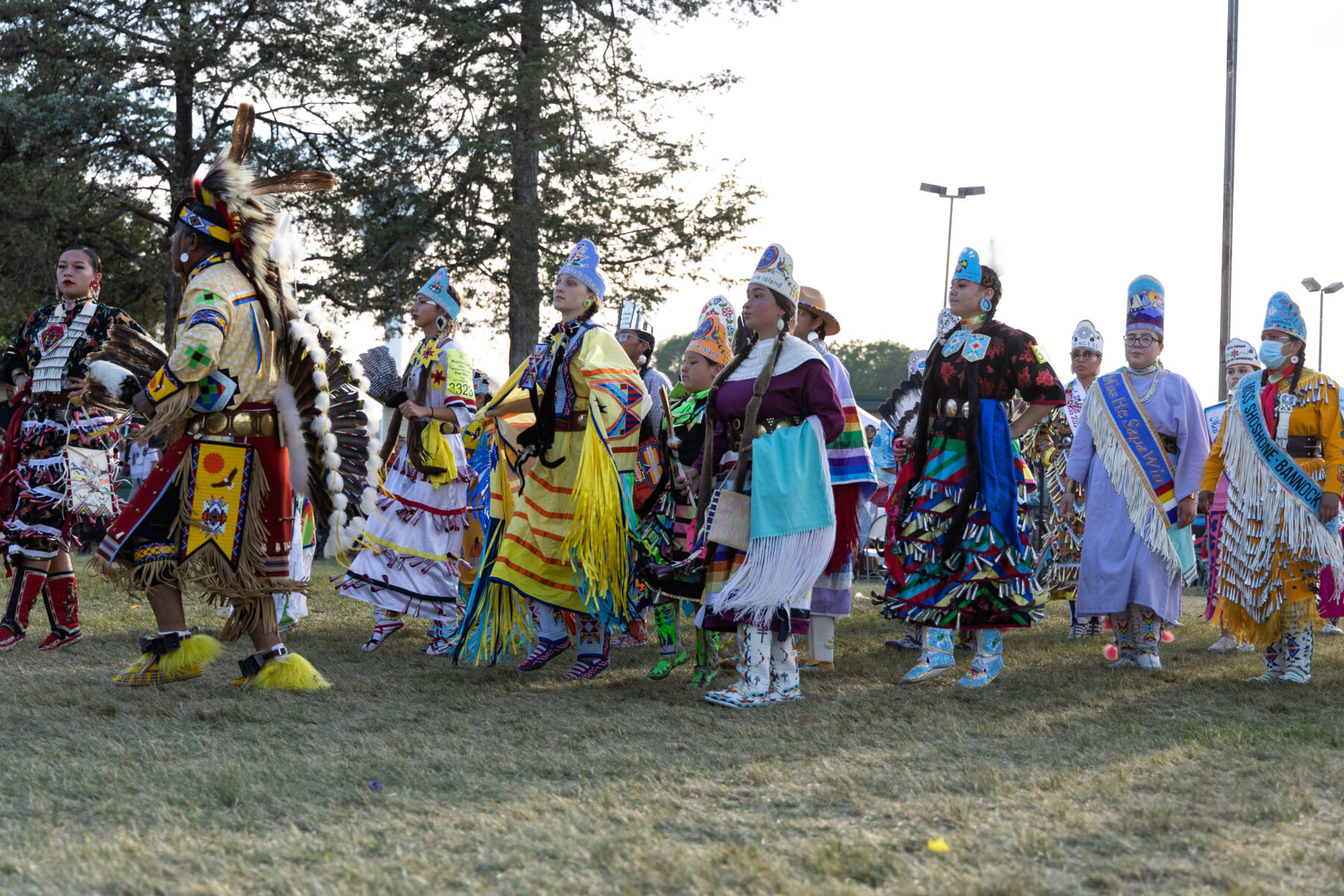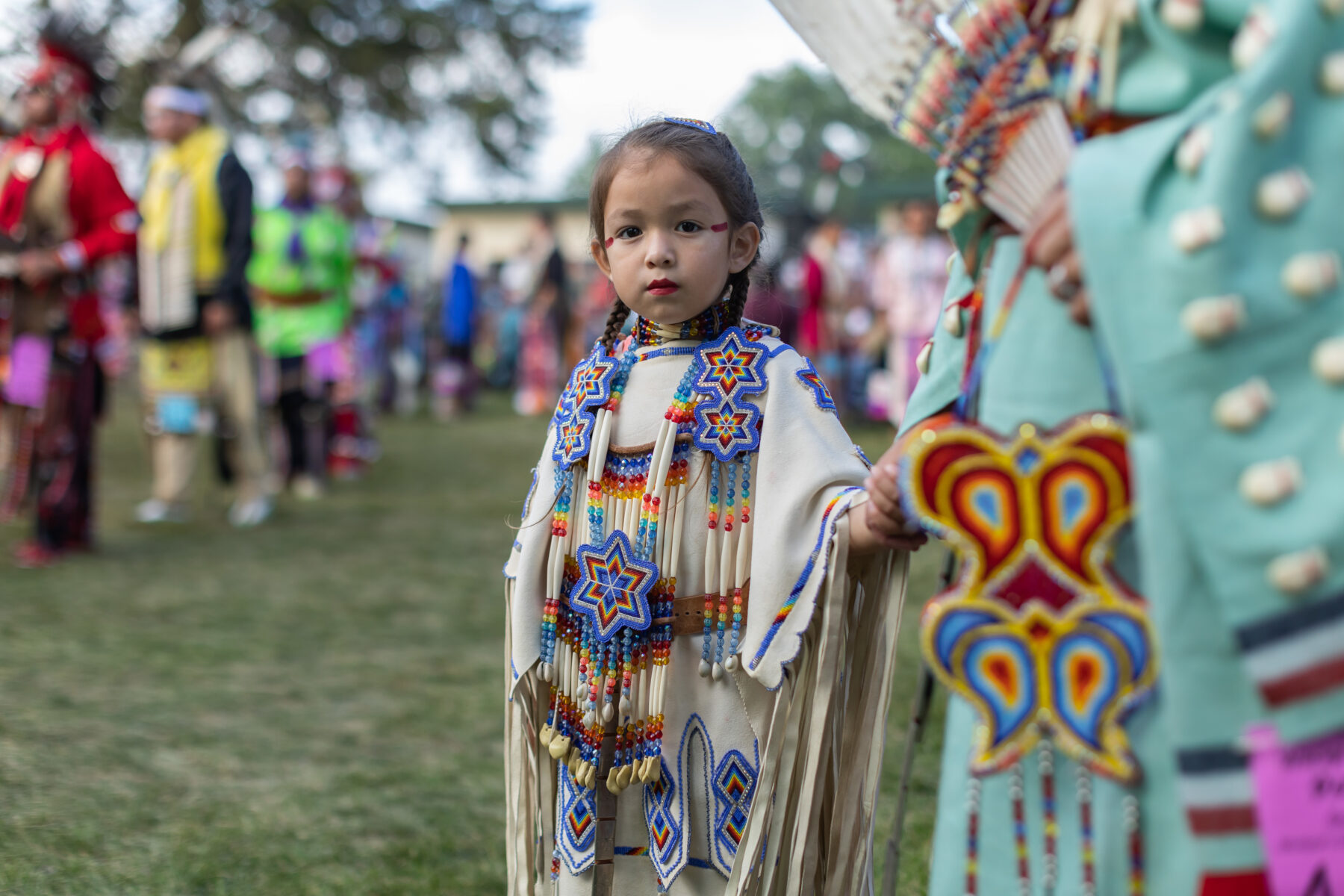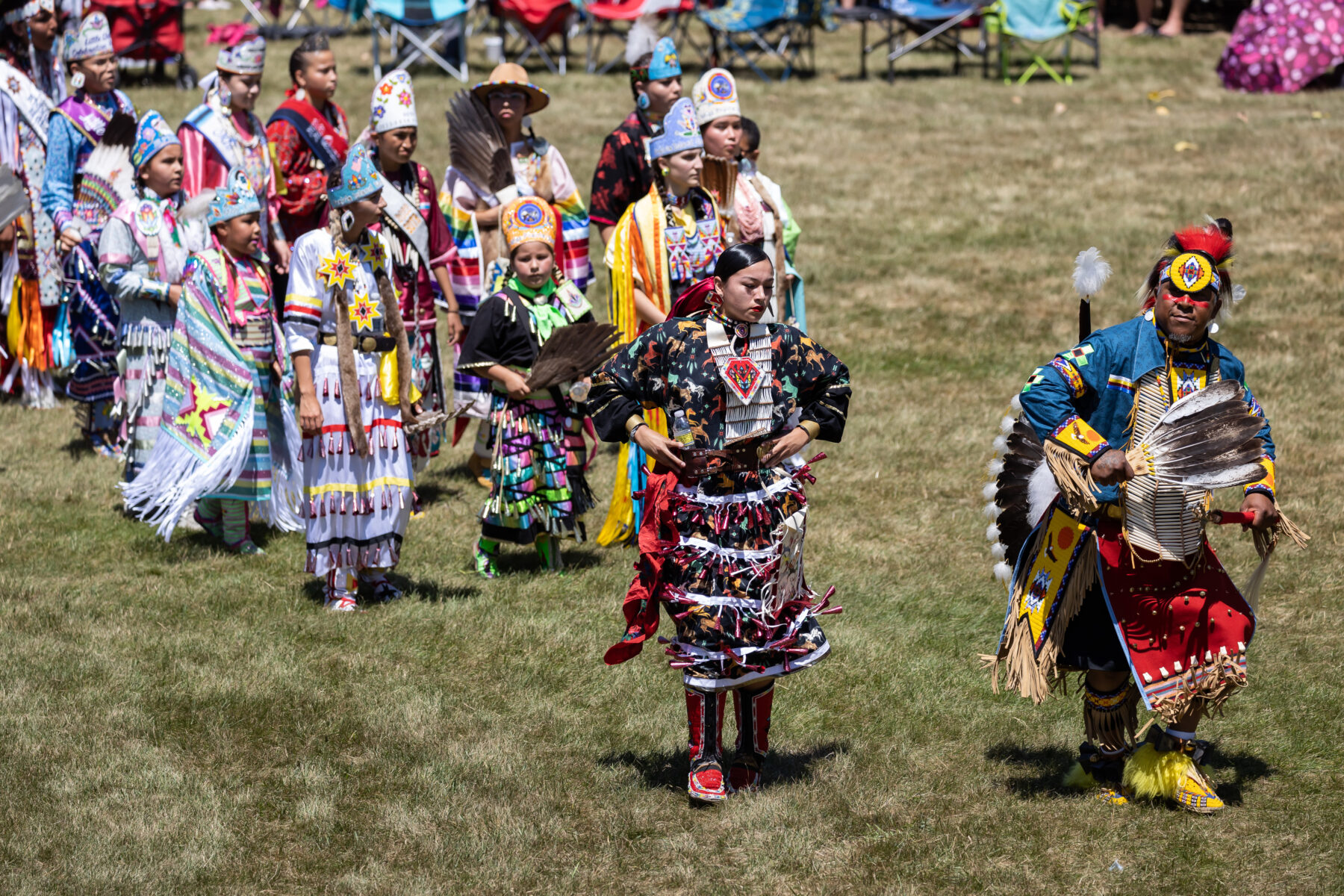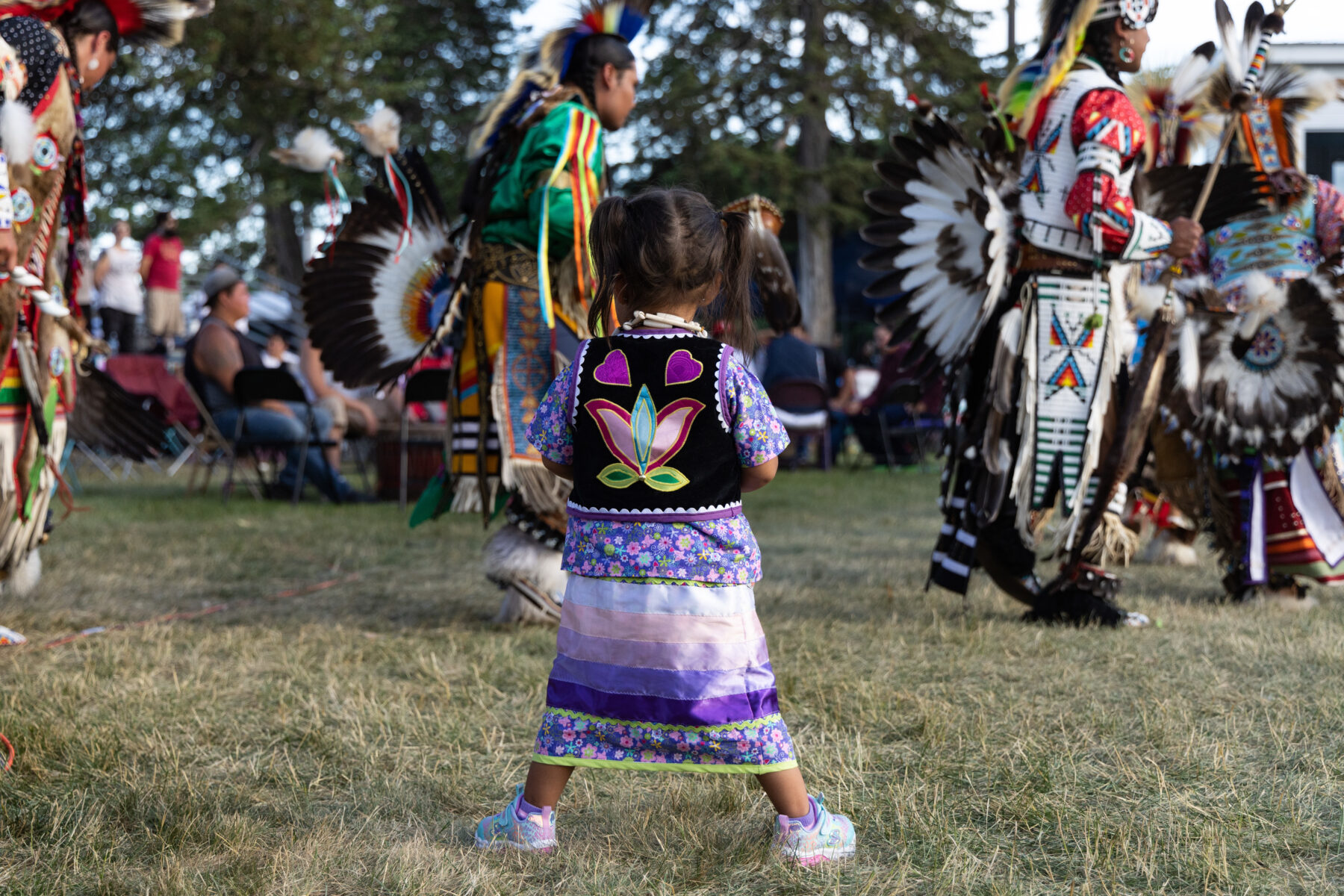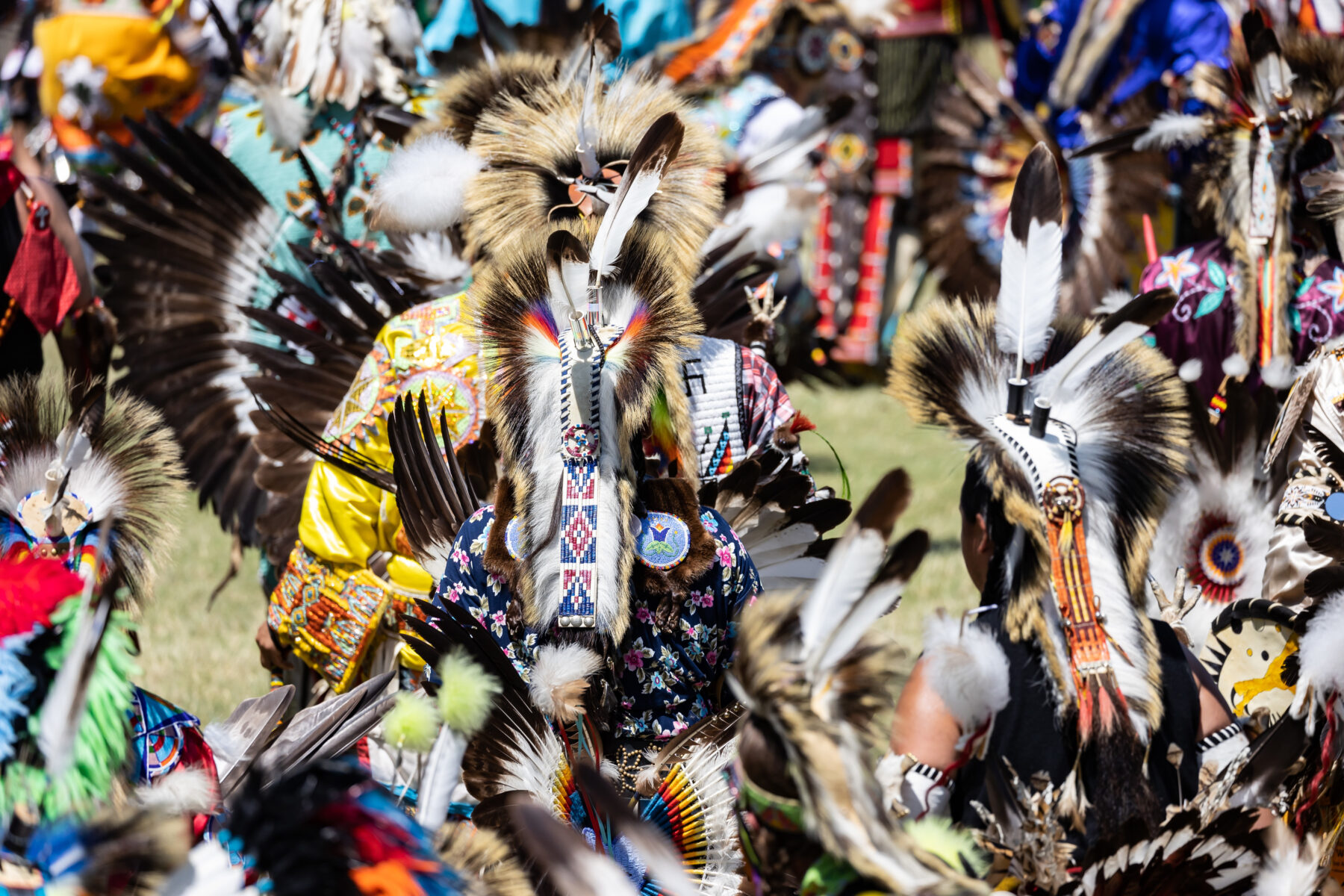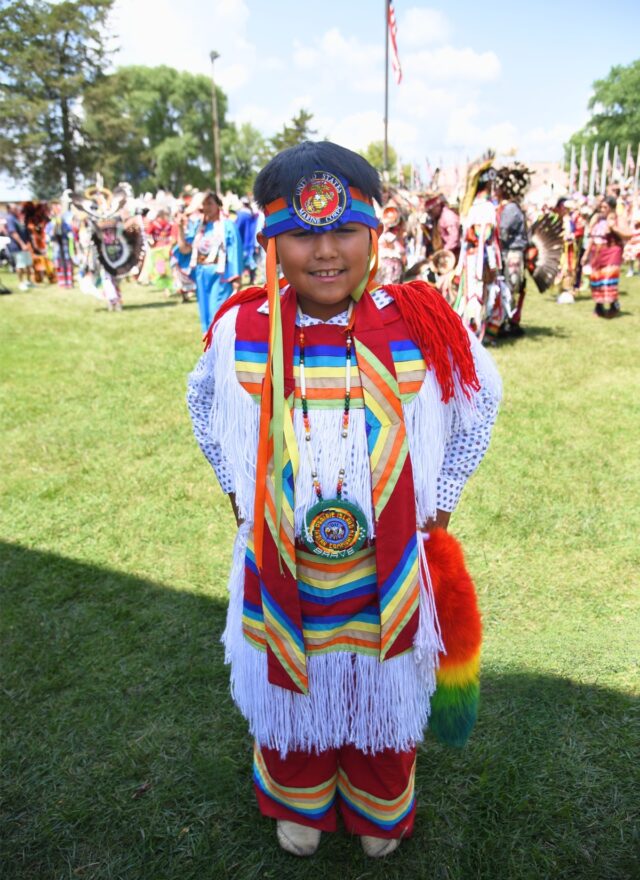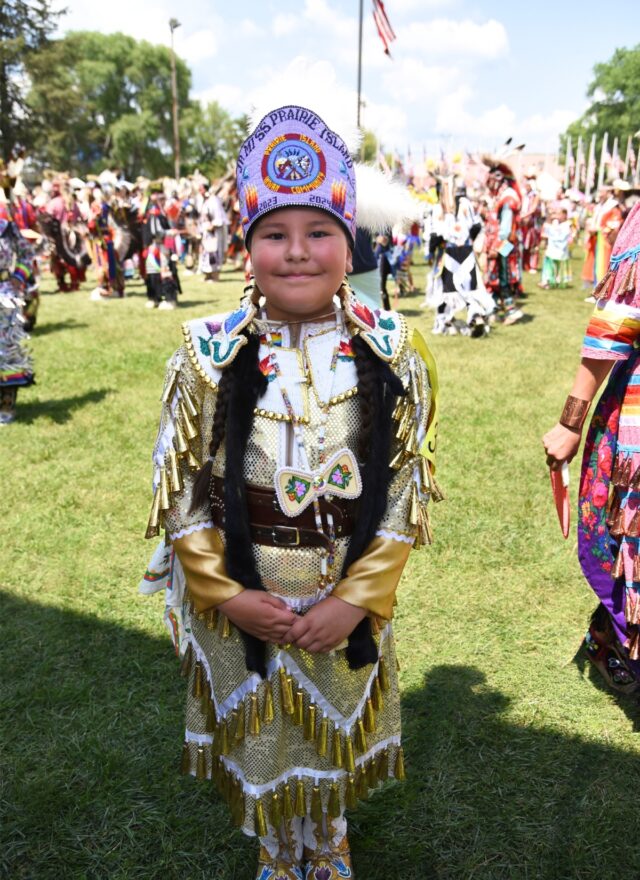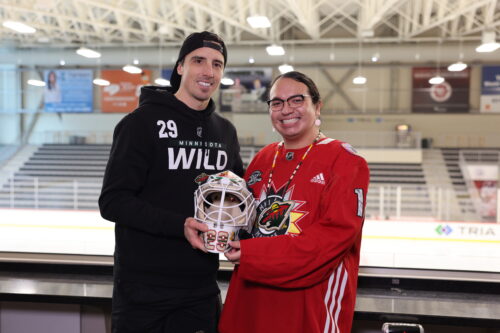The Heartbeat of Our Nation
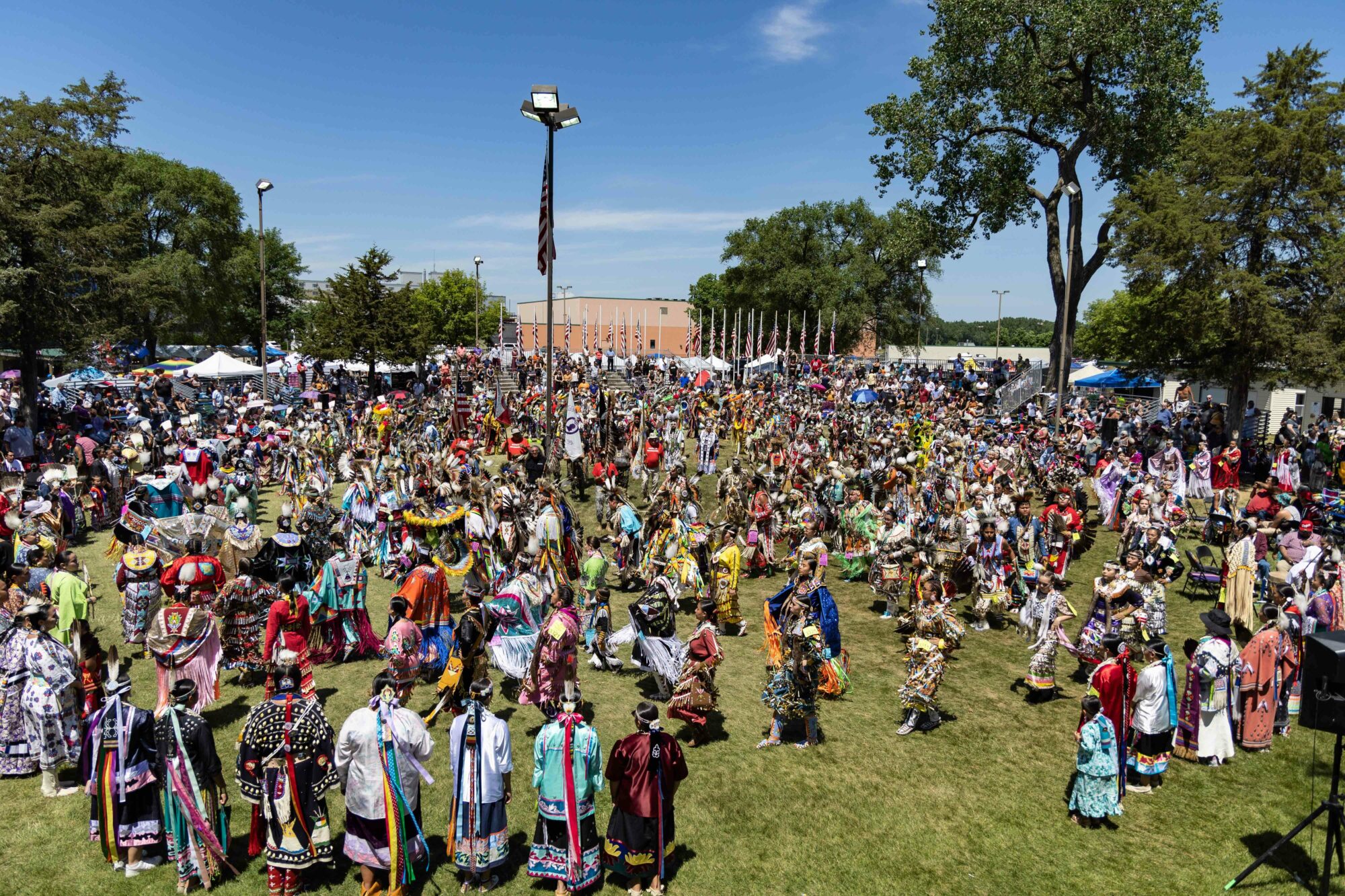
Celebrating Our Culture
Perhaps the most recognizable celebration of our culture is a traditional powwow.
The Dakota word for powwow is wacipi, which translates: they dance. And dancing is the centerpiece of these community celebrations. Powwows are an opportunity for gathering with family and community to honor our relatives and heritage. It is a time for singing, dancing, sharing meals, and socializing with new and old friends.
Prairie Island Wacipi
Prairie Island holds several wacipis throughout the year with dancing and singing competitions. The Memorial Day wacipi honors the Tribe’s brave military veterans who have walked on. The summer wacipi is the largest celebration of the year, drawing hundreds of participants from across the United States. The community also holds a winter wacipi.
Wacipis are typically held on the community’s powwow grounds, which is considered a sacred site, and last for several days.
What to Expect
Powwows are packed with ceremony and significance, from the regalia worn by dancers to the honoring of our elders and veterans. Visitors should expect a lot of singing and colorful dancing. While the atmosphere is celebratory, it is also deeply spiritual and always demands respectfulness. The powwow arena, where the dancing and singing takes place, is meant for ceremony and is not to be used as a playground or pass through. The powwow will be led by a master of ceremonies and guests should follow the guidance and directions at all times.
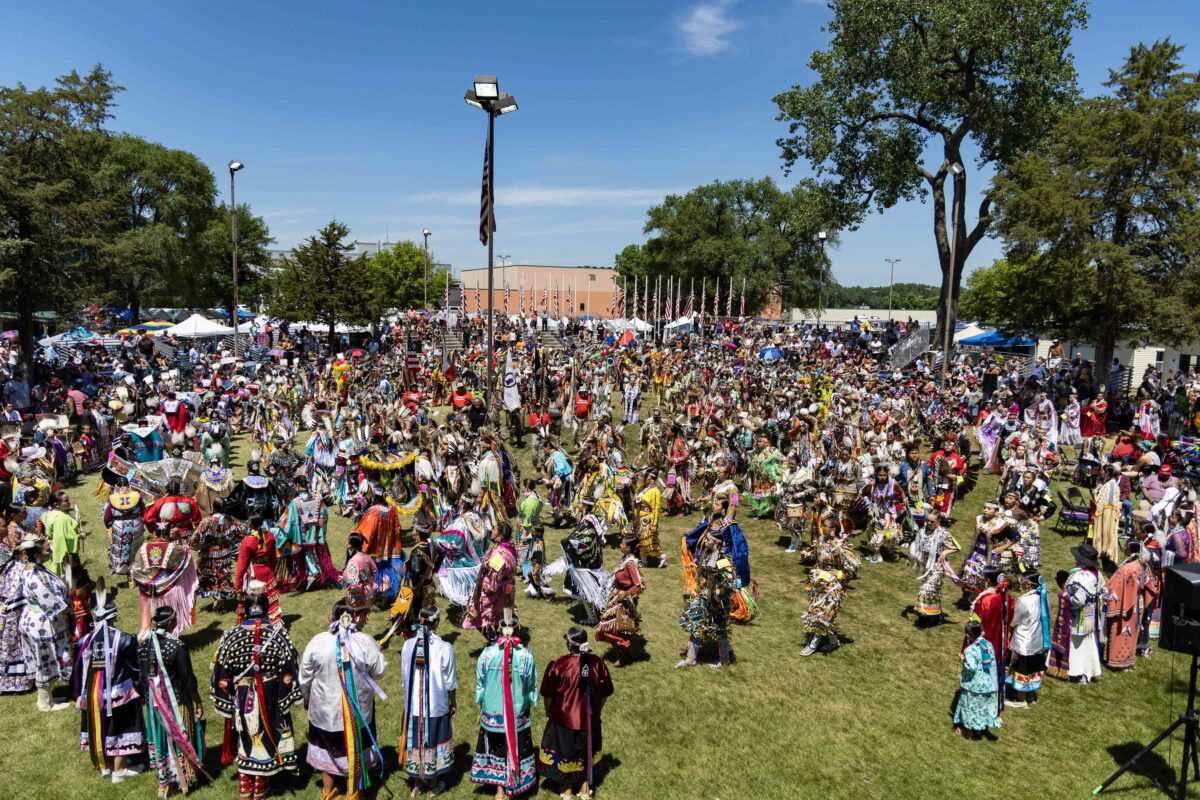
Circle of Life
The sacred powwow grounds form a circle. The circle has deep meaning in Native culture; it represents the circle of life. At the outer ring of the circle, you’ll find vendors and concessions. The next ring is the viewing circle, with seating for powwow visitors. The ring surrounding the arena is for drum groups and singers. Finally, dancers who enter the arena move in a circle around the arena. Together, these circles gather the community and family as one, reminding each of the importance of relatives, friends and community.
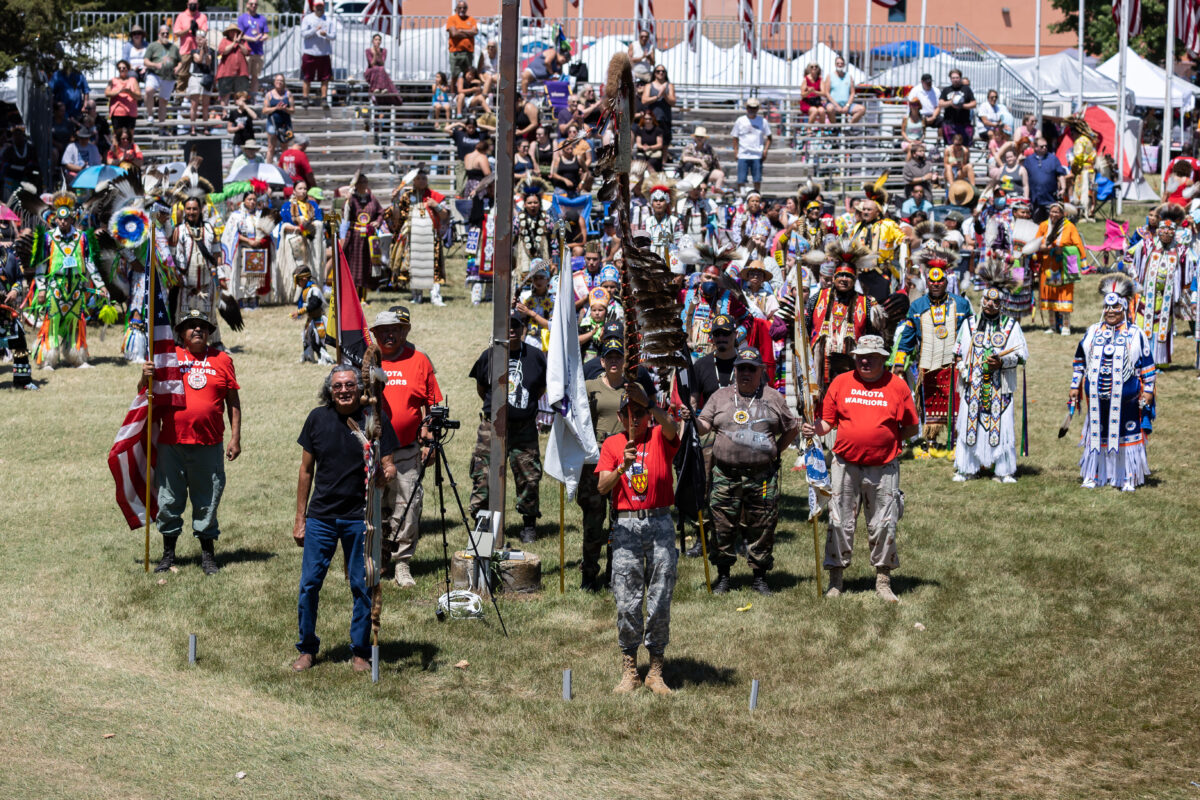
Grand Entry
All powwows begin with a grand entry. This is a time when all dancers enter the ring, led by elders, veterans, lead dancers and any honored guests. Honoring veterans who have bravely served in the military is a special part of the grand entry ceremony. All visitors are asked to stand for grand entry and the presentation of the flags and songs. Grand entry ends with a blessing for the gathering.
A Spiritual Celebration - Powwow Ettiquite
Sacred Ground
Powwow visitors should always act respectfully. If you are unsure of something, like whether photos are allowed, please ask.
The arena is meant for ceremony only and should not be entered unless you are participating in the ceremony. No smoking is not allowed in the arena, and drugs and alcohol are strictly forbidden at the powwow.
The arena is a grassy area that has been chosen, on which the dancing and singing will take place. This is sacred land. It has been blessed for the gathering; prayers have been said and tobacco has been offered to the Creator. This is not an area where children are invited to play. Treat this area as a church. It is not an area for the public to use as a short cut. Do not walk across the arena or allow children to run through that area. No dogs or pets are allowed in the arena. No food or drink while dancing or during prayers or honor songs.
In the middle of the arena, there are flag poles and holders for the Eagle Feather Staffs and flags. Veterans, who are greatly esteemed in Native cultures, will bring the flags and staff in during the Grand Entry.
Tribal members have a great and long tradition of serving in the US military, and Veterans are honored for their willingness to serve their country and for offering their lives to keep others safe.
Inside the arena you may see rows of chairs and blankets on the ground. Please do not disturb these.
Seating
You may bring your own lawn chair if you wish, but please be considerate of others, particularly the dancers and singers. Do not sit between a drum group and the center of the arena. You may not want to sit directly in front of the large speakers either. Do not sit on areas of the bleachers where blankets have been placed. If you wish to come early and reserve a space with your own blanket, you may do so. The area with chairs in the Announcer’s Stand is reserved for elders and those who are disabled. Elders are held in high regard by Native people and should be treated with dignity and respect. They have lived their lives, learning along the way, and have much to offer us, so we honor them.
Arena Directors
There are two Arena Directors who are responsible for keeping everything in the arena running smoothly. Their role is very important and should be respected. Masters of Ceremonies will be announcing over the loudspeaker periodically to keep the dancers, singers, and crowd informed, explain the dance styles, tell jokes and generally keep the action moving.
Photographs
There are times during the Powwow when it is NOT appropriate to take photographs. During prayers or ceremonies, or any time the announcer says so. You may take photos, for your own personal use, of dancers in the arena. Outside the arena, please ask before you take photos of any dancer(s).
Remove Your Cap
Please show respect during the Grand Entry, Honor Songs, and prayers by standing and removing your cap or hat. If you are elderly or have a medical condition, it is fine for you to sit if you need to.
Respect Regalia & Drums
Do NOT TOUCH a dancer’s regalia, even if it has fallen. Show them the lost item and let them pick it up themselves. Never touch the drum or the drumsticks. Do not walk between the drum and the chairs that are around it. (Drums are sacred and have been blessed. They are the heartbeat of the people, and the heartbeat of the Nation.)
Shaking Hands
Shaking hands is an important acknowledgment of another person. It says, “I acknowledge you as a fellow spiritual being on this path of life. I am glad to see you.” In Dakota culture, you shake hands any time you see someone you know. Any time you are introduced to someone, it is appropriate to shake hands. This is generally done very gently, not forcefully as is customary in the business world. During Honor Songs announced by the MC, you may enter the arena and shake hands with the family. Then get in the line of people and dancers behind them, if you want to participate. Follow what other people are doing. Those who are elderly or disabled may shake hands and return to their seats.
The Powwow is a Sacred Gathering
Please be respectful at all times. Behave as you would at church, but don’t be surprised to hear lots of laughter, joking, and gentle teasing. Humor is important to Native peoples because laughter is a gift from the Creator. All of life is a gift from the Creator. Walk around the grounds, look at the merchandise in vendor booths, smell the frybread, drink lemonade. Try your first Indian taco. Treat Unci Maka, Grandmother Earth, with respect by picking up after yourself. Leave an area cleaner than you found it. You may Dance in the arena during an “Intertribal” time, even if you are not wearing regalia. Just walk in time with the beat of the drums and watch others around you to see what they do. It is considered impolite to show off or horse around.
Regalia
Native American regalia is special dress, ornamentation, jewelry and other accesories which is worn for particular occasions such as festivals and dances, ceremonies and rituals. The style of dress, symbols used in designs, colors in beadwork and other ornaments can help identify the wearer’s tribe or family. Specific aspects of regalia can also indicate the wearer’s political or marital status. Today, wearing regalia is a way to maintain Native American Heritage, to take pride in and pass on old traditions and help create new ones.
